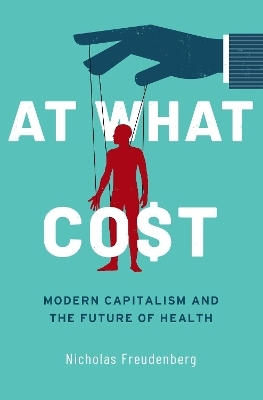
At What Cost
Oxford University Press Inc (Verlag)
978-0-19-007862-1 (ISBN)
An incisive and powerful investigation of corporate impact on human and planetary well-being
Freedom of choice lies at the heart of American society. Every day, individuals decide what to eat, which doctors to see, who to connect with online, and where to educate their children. Yet, many Americans don't realize that these choices are illusory at best. By the start of the 21st century, every major industrial sector in the global economy was controlled by no more than five transnational corporations, and in about a third of these sectors, a single company accounted for more than 40 percent of global sales. The available options in food, healthcare, education, transportation, and even online presence are largely constructed by corporations, whose sweeping influence have made them the public face and executive agents of 21st-century capitalism.
At What Cost confronts how globalization, financial speculation, monopolies, and control of science and technology have enhanced the ability of corporations and their allies to overwhelm influences of government, family, community, and faith. As corporations manipulate demand through skillful marketing and veto the choices that undermine their bottom line, free consumer choice has all but disappeared, and with it, the personal protections guarding our collective health. At What Cost argues that the world created by 21st-century capitalism is simply not fit to solve our most serious public health problems, from climate change to opioid addiction. However, author and public health expert Nicholas Freudenberg also shows that though the road is steep, human and planetary well-being constitute a powerful mobilizing idea for a new social movement, one that will restore the power of individual voice to our democracy.
With impeccably detailed research and an eye towards a better future, At What Cost arms ordinary citizens, activists, and health professionals with an understanding of how we've arrived at the precipice, and what we can do to ensure a healthier collective future.
Nicholas Freudenberg, DrPH, MPH, is Distinguished Professor of Public Health at the City University of New York Graduate School of Public Health and Health Policy, Director of the CUNY Urban Food Policy Institute, and Founder of Corporations and Health Watch, a website that monitors the impact of corporations on health. Dr. Freudenberg is the author or co-author of five other books and more than 100 scientific articles. His work has been supported by the National Institutes of Health, the U.S. Centers for Disease Control, the Robert Wood Johnson Foundation, and the Open Society Institute.
Table of Contents
Preface
Acknowledgments
Part I. Introduction
1. The Changing Face of U.S. and Global Capitalism
Part II. The Pillars of Health
2. Food: Ultraprocessed Products Become the Global Diet
3. Education: Private Capital Goes to School
4. Health Care: the Medical Care Industry's War on Cancer
5. Consequences of the Growth of Low-Wage and Precarious Work
6. Transportation: Uber and Autonomous Vehicles vs. Mass Transit
7. Social Connections: Extracting Profit from Human Relations
Part III. Conclusion
8. Transitions from 21st-century Capitalism
9. From Now to Next: To Build a Movement for Another World
References
| Erscheinungsdatum | 09.03.2021 |
|---|---|
| Verlagsort | New York |
| Sprache | englisch |
| Maße | 234 x 163 mm |
| Gewicht | 721 g |
| Themenwelt | Studium ► Querschnittsbereiche ► Prävention / Gesundheitsförderung |
| Sozialwissenschaften ► Politik / Verwaltung | |
| Wirtschaft ► Volkswirtschaftslehre | |
| ISBN-10 | 0-19-007862-6 / 0190078626 |
| ISBN-13 | 978-0-19-007862-1 / 9780190078621 |
| Zustand | Neuware |
| Informationen gemäß Produktsicherheitsverordnung (GPSR) | |
| Haben Sie eine Frage zum Produkt? |
aus dem Bereich


